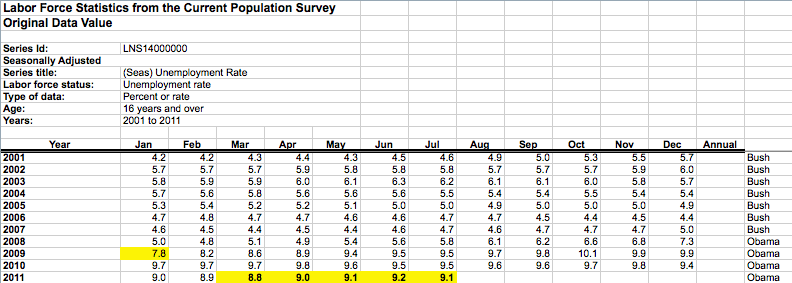President Obama has replaced Chief White House Economist and University of Chicago Research Professor Austan Goolsbee with Princeton Professor Alan Krueger.
Austan Goolsbee is the chief economist for the President’s Economic Recovery Advisory Board. He is also the chairman of the Council of Economic Advisers and a member of the Cabinet.
Goolsbee is on leave from the University of Chicago’s Booth School of Business, where he researched tax policy, American industry, technology and innovation as the Robert P. Gwinn Professor of Economics. He was an economic adviser to Obama’s 2004 Senate campaign before serving as a senior economic adviser to Obama’s 2008 presidential campaign.
Prior to joining the Obama Administration, Goolsbee was a member of the Panel of Economic Advisers to the Congressional Budget Office, a research associate at the National Bureau of Economic Research, and a research fellow at the American Bar Foundation. He was also a member of the U.S. Census Advisory Committee.
Goolsbee is a former Fulbright Scholar and Alfred P. Sloan Fellow. He was selected as one of The Financial Times’ six “Gurus of the Future”/Best under 40 (2005) and named a Young Global Leader at the 2005 World Economic Forum. An economics columnist for Slate and The New York Times, Goolsbee was awarded the 2006 Peter Lisagor Award for Exemplary Journalism.
Goolsbee earned his bachelor’s and master’s degrees in economics from Yale University in 1991 and his Ph.D in economics from the Massachusetts Institute of Technology in 1995.
Alan B. Krueger Bendheim Professor of Economics and Public Affairs at Princeton University
He has published widely on the economics of education, unemployment, labor demand, income distribution, social insurance, labor market regulation, terrorism and environmental economics. Since 1987 he has held a joint appointment in the Economics Department and Woodrow Wilson School at Princeton University.
He is the founding Director of the Princeton University Survey Research Center. He is the author of What Makes A Terrorist: Economics and the Roots of Terrorism and Education Matters: A Selection of Essays on Education, and co-author of Myth and Measurement: The New Economics of the Minimum Wage, and co-author of Inequality in America: What Role for Human Capital Policies? He has been a member of the Board of Directors of the Russell Sage Foundation, MacArthur Foundation, and the American Institutes for Research, as well as a member of the editorial board of Science (2001-09), editor of the Journal of Economic Perspectives (1996-2002) and co-editor of the Journal of the European Economic Association (2003-05).
Professor Krueger served as Assistant Secretary for Economic Policy and Chief Economist of the U.S. Department of the Treasury in 2009-10. In 1994-95 he served as Chief Economist at the U.S. Department of Labor.
He has been a member of the Executive Committee of the American Economic Association (2005-07) and International Economic Association, and Chief Economist for the National Council on Economic Education (2003-09). He was named a Sloan Fellow in Economics in 1992 and an NBER Olin Fellow in 1989-90. He was elected a Fellow of the Econometric Society in 1996 and a fellow of the Society of Labor Economists in 2005. He was awarded the Kershaw Prize by the Association for Public Policy and Management in 1997 and Mahalanobis Memorial Medal by the Indian Econometric Society in 2001. In 2002 he was elected a fellow of the American Academy of Arts & Sciences, and in 2003 he was elected a fellow of the American Academy of Political and Social Science. He was awarded the IZA Prize in Labor Economics with David Card in 2006. From 2000 to 2006 he was a regular contributor to the "Economic Scene" column in the New York Times. He received a B.S. degree (with honors) from Cornell University's School of Industrial & Labor Relations in 1983, an A.M. in Economics from Harvard University in 1985, and a Ph.D. in Economics from Harvard University in 1987.
Recommended
Yes, rather than choosing a small business owner, maybe even a CEO, or simply someone with some kind of private sector business experience to give him advise about how to get the private sector moving again, the President, who is expected to lay out another big government jobs plan next week, wants another academic, with experience based only in theory and textbooks, advising him on the economy.
Definition of insanity:
Doing the same thing over and over again and expecting a different result
In March of this year, Krueger predicted unemployment would decline and that more people looking for full time employment would find it.
The conventional wisdom now holds that the rate should rise because many workers who left the labor force will come back and start looking for a job as the economy improves. To be counted as unemployed, someone must have searched for a job in the past month.
While many jobless workers have indeed given up on the search, I’m going on record as a contrarian. I suspect a large rise in the labor force won’t cause the unemployment rate to jump. Instead, I suspect we’re going to see a continuing decline in the unemployment rate, though there surely will be some blips along the way.
Since Krueger's March prediction, we've seen unemployment sit above 9 percent, more than 14 million Americans remain unemployed and we've seen more people exit the labor force due to lack of jobs and being discouraged.
In the following chart, notice the unemployment in January 2009, 7.8 percent and now, 9.1 percent. Since Krueger said unemployment would go down, we've seen rates of 8.8, 9.0, 9.1, 9.2 and 9.1 pecent. The latest drop from 9.2 percent to 9.1 percent came with more Americans leaving the work force, not because more people have found jobs and become employed.

























Join the conversation as a VIP Member